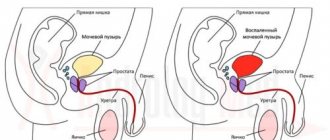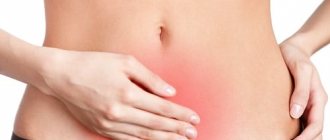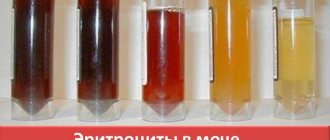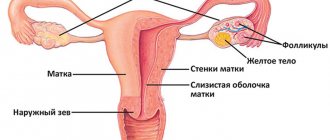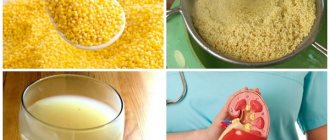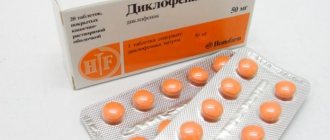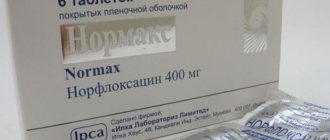Patients who are concerned about bladder inflammation are concerned about how long cystitis can last with timely treatment. In this case, the stage of the disease remains very important, as well as the timeliness of medical care. No less serious will be the accuracy and completeness of the diagnostics performed and the use of medications in accordance with the doctor’s prescription. The main stages and symptoms of the disease, the nature of its course will be discussed below.
How long can the acute phase last?
Experts define 2 types:
- acute;
- chronic.
The initial or acute stage of inflammation proceeds secretly: after the first signs, remission (temporary relief) may occur, which is mistakenly taken by patients for an imaginary recovery. It begins with pain in the lower abdomen, and a change in the color of the urine is possible. The urge to urinate becomes more frequent, but the volume of discharge decreases. Sometimes the temperature rises, there are manifestations of general weakness and malaise.
All these symptoms can easily be confused with inflammation of the appendix or pyelonephritis. Even an experienced urologist is unlikely to answer clearly how long cystitis lasts in its acute form: often the disease develops rapidly, immediately becoming chronic. In other patients, the initial symptoms, ignored and left without intervention, subside for a while, only to reappear later.
Important. Urologists consider pain during urination, pain in the urethra, and staining (smell) of urine to be the first signs of cystitis.
These symptoms require immediate intervention, even if they are not related specifically to this type of disease.
Statistics show that in most cases, events develop literally within a few hours: from cutting pain in the genital area to a sharp increase in temperature and a decrease in the volume of discharge. Sometimes it takes 3-4 days.
Children rarely experience girdling pain in the lumbar region, but there are attacks before and after the urge to urinate. They can be so strong that the child is unable to urinate normally. In general, frequent trips to the toilet should be of concern (for all ages and genders).
The infectious nature of the disease leaves the patient no chance - it will not go away on its own. Moreover, then the inflammation goes deeper, developing in the tissues of the bladder, mucous membrane and muscle wall.
Why does it affect women more often?
It is easier for the causative agent of cystitis to enter the female urethra because it is wider and shorter than the male urethra.
In women, the external opening of the urethra is located near the anus and vagina, which makes it easy for bacteria to enter the urinary tract.
Gynecological diseases can be caused by hormonal imbalance
. Dysbacteriosis in the vagina provokes the growth of pathogenic microbes. Obstructed urine flow occurs as a result of pregnancy, which leads to stagnation of urine, the development of microorganisms in it and the appearance of cystitis.
How long does it take to cure chronic cystitis?
Patients often ask how long it takes to treat cystitis and whether cystitis can be cured forever - this depends, first of all, on the stage of the disease, the individual characteristics of the body and other factors (for example, the type of medications used). Approximately, if you follow all the doctor’s prescriptions, inflammation, on average, is cured in 15-20 days.
Chronic cystitis is often complicated by other infections and ailments - the set of them is quite diverse, which seriously complicates medical practice. Bacteria that have settled in organs and tissues can manifest themselves at the slightest relapse - for example, hypothermia. In addition, congestion in the bladder that occurs with urolithiasis will always become a favorable basis for the proliferation of pathogens on the mucous membrane.
Therefore, the urologist will most often use complex treatment, the composition and duration of which depends on the specific situation. And therapy begins with diagnosis. It includes: urine and blood tests (general, detailed), ultrasound or fluoroscopy of the genitourinary organs, a smear for microflora and sexually transmitted diseases, a detailed examination by a urologist (for women - by a gynecologist). Diagnostics usually takes approximately 2 to 7 days, the exact period depends on the volume and completeness of the research.
Description of the pathology
Cystitis belongs to a group of urological diseases, which is characterized by damage to the mucous membrane of the bladder. Pathology has a list of etiological factors, among which are:
- Bacteria.
- Viruses.
- Allergic reactions.
- Injuries.
Bacteria cause most clinical cases of bladder inflammation. Common groups of pathogens include intestinal flora, sexually transmitted infections, and opportunistic pathogens (which are present in humans but cause disease when the immune system is weakened).
Provoking factors such as:
- Hypothermia.
- Drinking alcoholic beverages.
- Presence of other pathologies.
- Vitamin deficiency and seasonal decrease in the activity of the immune system.
In the clinical picture of cystitis, it is customary to distinguish acute, chronic and subacute forms, which differ in the nature of the course.
Acute cystitis occurs once, and the symptoms are pronounced and there are characteristic signs of damage to the bladder. Subacute occurs with a blurred clinical picture.
The danger of the subacute form is that it does not cause discomfort to the person, which is why he does not consult a doctor. If treatment is not carried out, the infectious process becomes chronic.
Chronic is characterized by alternating acute periods and stages of remission. If preventive measures are taken, remission lasts several years and the disease does not bother the woman.
How long does drug treatment take?
How many days cystitis is treated depends on the treatment method used and the type of microflora found on the mucosa. For example, for fungi, viruses and bacteria, separate medications and an individual therapeutic period are prescribed. The approximate duration is:
- antibiotics (inhibition of bacterial flora) – 7-10 days;
- anti-inflammatory drugs (pain relief) – 5-7 days.
In addition, prevention (14-20 days) and herbal medicine are used. Treatment with medicinal herbs and herbs is the most gentle for the body in terms of side effects, but at the same time it is the longest. It takes 2-3 weeks. Specialists also apply anti-relapse measures - this will take six months or more. Without correct diagnosis and determination of the stage of the disease, the use of strong medications turns into self-medication. And this is fraught with complications and unpredictable results.
To find out how long it takes for acute cystitis to go away, you need to go to the clinic at the first attacks: in this case, the disease can be suppressed in just a few days. For this purpose, antispasmodics are prescribed to make urination easier, and immune medications.
Drinking plenty of fluids (only clean water without gas), special urological and kidney preparations also contribute to healing. Herbal medicine is used externally: warm baths relieve pain syndromes and at the same time restore the condition of the inflamed mucosa. These are such widespread plants as bearberry, St. John's wort, cornflower, celandine, lingonberry, horsetail, and fennel. Concentrated medications based on natural ingredients (phytolysin, canephron) are also used.
Attention. Treatment with folk remedies, for all its attractiveness and unconditional benefits, may not give the desired effect due to the complex infectious nature of the disease and the lack of diagnostic tools at home. A complete picture will be given by an examination in a hospital, using highly sensitive modern equipment.
Treatment protocol: choice of therapy and duration of treatment
The duration of development of focal inflammation in the structure of the bladder is influenced by the correct individual selection of complex treatment, including:
- Antibiotic drugs - a course of 3 days to a week.
- Antifungal drugs - a course of one to two weeks.
- Antiviral drugs - duration of use is from 5 days to one and a half weeks.
- Immunostimulating drugs. The duration of the course is up to one and a half weeks.
Additionally, therapy with painkillers and anti-inflammatory drugs is carried out. Depending on the manifestations of signs of urinary disorders, a month-long course of herbal medicine, homeopathic remedies and dietary adjustments are recommended. To improve the effect of drug treatment, various physiotherapy techniques are prescribed.
Only a doctor draws up the necessary treatment regimen and selection of medications.
Does the disease last longer with self-medication?
Urology specialists, when asked the question: how many days does it take for cystitis to go away on its own, without medical help, using therapy from improvised methods, will answer that it will not be soon. Without undergoing tests, without having information about the presence of a bacterial environment, no qualified diagnostician can say either “yes” or “no”. Even without obvious signs of complications, with a favorable course of the disease, the most accurate data on the condition of the mucous membrane, the composition of urine, previous diseases, and the level of the patient’s immunity are necessary.
Of course, this is not always enough. Cystitis, in the vast majority of cases, develops against the background of other infections or appears after hypothermia (suffered from an acute respiratory infection). Its symptoms may be disguised as other common diseases or develop as a result of unsuccessful surgery.
Therefore, any delay in visiting the clinic increases the period of complete recovery. Self-medication is conditionally permissible only at the initial stage, and only if it is not possible to immediately contact a medical institution. Antispasmodics (no-spa, papaverine) will help alleviate painful attacks, but have no effect on the spread of infection.
Recommendations for a quick recovery
Doctors warn that taking antibiotics alone is not enough for a complete recovery and recommend:
- Maintain bed rest;
- Take warm baths with herbal infusions;
- Follow a diet. You need to give up alcohol, smoked foods, sweets and pickles. Advises eating vegetables, dairy products, drinking more fluids;
- You cannot stop treatment after the first improvement. You need to complete the course of antibiotics;
- You should strengthen your immune system, rest more often and not overwork;
- It is necessary to take care of personal hygiene and avoid casual sexual intercourse;
- The body must not be overcooled.
Herbal decoctions and infusions can only be taken orally after consulting a doctor. Many plants have contraindications. The diet must be followed after finishing the course of antibiotics for 2-3 weeks. If antibacterial drugs are replaced with herbal medicines, the recovery time will increase significantly.
